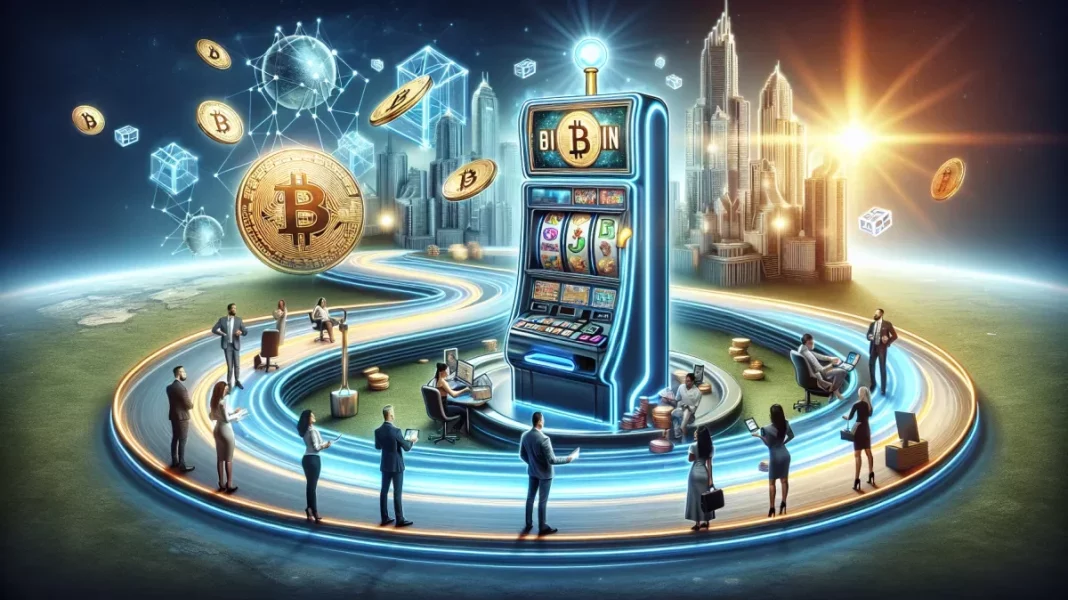It’s no secret that the world of gambling is no stranger to change and adaptation. For decades, the industry has evolved to meet the shifting demands of gamblers and to align with the transforming landscapes of both politics and technology. Historically, the licenses for these gambling establishments have been issued by centralized entities like state commissions, national gambling boards, and regulatory bodies. However, as the world embraces a new wave of decentralization, courtesy of groundbreaking technologies such as blockchain, questions arise such as: how will the future of gambling licenses transform? How will they align, integrate or even adopt the waves brought about by a decentralized world? These are the questions that will guide our exploration as we delve into the future of gambling licenses in a decentralized world.
The Impact of Blockchain On Gambling
Blockchain, synonymous with the advent of cryptocurrencies like Bitcoin, is the defining force behind the current wave of decentralization. Primarily characterized by decentralized control as opposed to centralized digital money and central banking systems, blockchain has significant implications for digital identities, record management, and of course, the handling of digital currencies [1].
In the gambling industry, these features offer immense possibilities regarding transparency, trust issues, fast, and secure transactions. The result is not only an elevated gambling experience for the gambler but also a significant redefinition of the relationship between the gambling establishment and the gambler.
Change in License Management
The traditional hypostasis of license management, mainly conducted by centralized regulatory bodies, can also be greatly influenced by blockchain technology.
Such bodies subject gambling establishments to stringent regulatory oversight, and for a good reason; to protect consumers, prevent illegal activities like money laundering and ensure businesses comply with the local laws of the land. However, these regulatory procedures are often quite cumbersome, complex, and can potentially stifle the industry’s innovation and growth.
A decentralized blockchain system addresses these challenges by offering a seamless and efficient solution. By storing licenses on a blockchain, this information becomes tamper-proof and easily accessible for review by the public and regulatory bodies [2]. More importantly, license updating, distribution, control, and regulation can be done in real-time, eliminating bureaucratic delays that have hampered the industry for far too long.
Smart Contracts: The Future of Regulatory Compliance?
Another core feature of the blockchain that bodes well for gambling licenses is smart contracts. These are self-executing contracts with the terms of the agreement being written into code and distributed across the blockchain.
In terms of gambling, smart contracts could automate processes such as license issuance, renewal and revoking [3]. It also can enable real-time auditing and ensure compliance with gambling laws and regulations by automating checks and balances. If a gambling establishment fails to meet a certain standard or breaks a rule, the smart contract would automatically trigger a response, such as revoking a license or issuing a fine.
Decentralization: What It Means For Gamblers
Decentralization can also be particularly beneficial for users. Blockchain technology affords gamblers an unparalleled degree of transparency, allowing them to verify for themselves whether a game is fair. In this context, licensing information for online platforms could be made publicly accessible via blockchain. This would assure gamblers that they are betting in a licensed, fair, and therefore, trustworthy establishment.
Granted, the adaptation of blockchain in gambling licensing is a pursuit fraught with challenges. Not only does it require the technologic accommodation, it requires that stakeholders including software developers, gamblers, business operators, and even governments demonstrate a willingness to embrace this change, disrupting well-established norms and systems.
In Conclusion
With the advent of blockchain technology, the future of licensing in the gambling world seems destined for a shift towards decentralization. Blockchain presents opportunities for the fields of transparency, democracy, efficiency, and security which are too significant for the industry to ignore. As the world continues to acclimatize to the changes brought about by blockchain, it seems inevitable that gambling will fully embrace all its benefits, including those that impact licensure. As always, pioneers will need to tread on uncharted grounds, but the future undoubtedly belongs to decentralized gambling licenses.
Sources:
[1] Guo, F., & Liang, C. (2016). Blockchain application and outlook in the banking industry. Financial Innovation, 2(1), 24.
[2] Tapscott, D., & Tapscott, A. (2016). Blockchain Revolution: How the technology behind bitcoin is changing money, business, and the world. Penguin.
[3] Christidis, K., & Devetsikiotis, M. (2016). Blockchains and smart contracts for the IoT. IEEE ACCESS, 4, 2292-2303.



